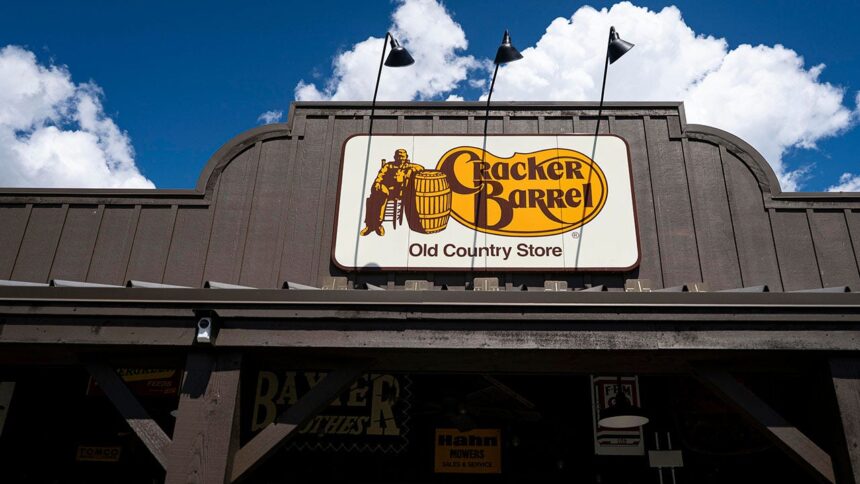Cracker Barrel’s fourth quarter earnings presentation revealed a significant backlash against its recently attempted logo redesign, a decision the company has now reversed due to overwhelming customer sentiment. The Lebanon, Tennessee-based restaurant chain reported total revenue of $868 million, reflecting a 2.9% decrease compared to the same quarter last year. Since the rollout of the streamlined, text-only logo in August, traffic to its restaurants has plummeted by 8%. Following this disappointing response, Cracker Barrel’s shares fell nearly 10% in after-hours trading.
During the earnings call, President and CEO Julie Masino acknowledged that the company had not fully grasped the emotional ties customers have to its nostalgic branding. “We want longtime fans and new guests to experience the full story of the people, places, and food that make Cracker Barrel so special,” Masino stated. This acknowledgment led to a swift pivot; the company has already begun reverting to its classic logo and is executing marketing initiatives that celebrate its heritage, particularly focusing on “Uncle Herschel.”
In addition to the logo change, Masino indicated that Cracker Barrel plans to convert four modernized test stores back to traditional interiors, effectively halting the remodeled design that strayed from the brand’s Americana roots. This decision comes after widespread customer feedback underscored a strong preference for the established décor that reflects the company’s traditional values.
Masino expressed gratitude for customer feedback, stating, “We thank our guests for sharing their voices and love for the brand and telling us when we’ve misstepped.” Despite these missteps, she pointed out that Cracker Barrel has been facing challenges in keeping up with changing consumer preferences related to food, travel, and technology over the past decade.
The CEO also highlighted areas of positive growth within the company, including the return of “Uncle Herschel’s Breakfast,” the introduction of a new service model called “The Herschel Way,” and an uptick in the loyalty program, which added 300,000 members in just four weeks. Masino concluded with an optimistic outlook, emphasizing the company’s commitment to improving both food quality and overall guest experience as part of its multi-year improvement plan.
The chain’s logo redesign attempt, which some perceived as a move towards a more modern corporate image, led to significant backlash, costing the company over $140 million in market value during the height of the controversy. The recent events serve as a reminder of the importance of brand heritage and consumer connections in the restaurant industry.







